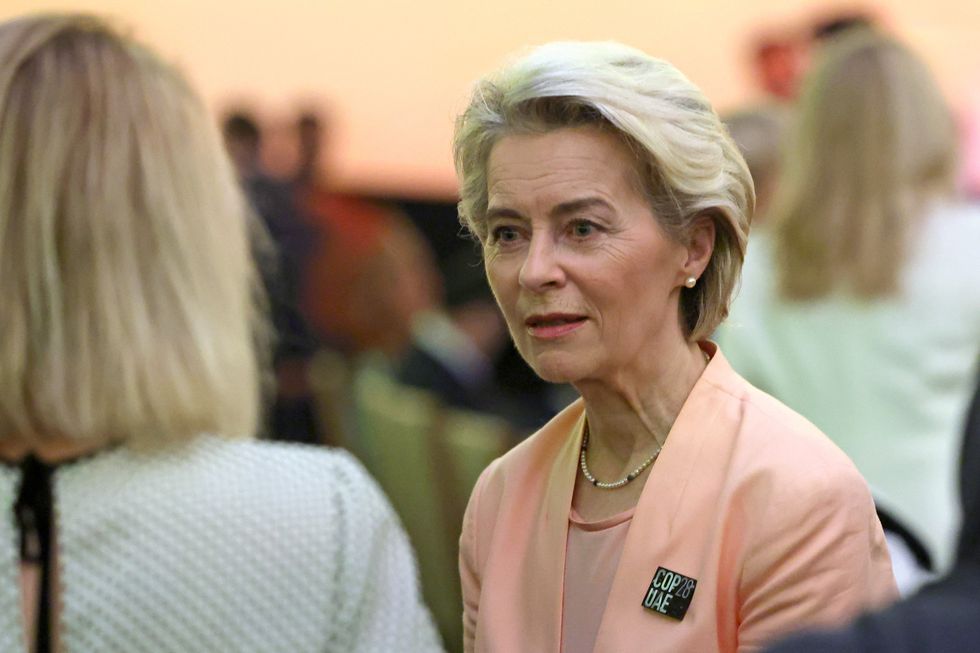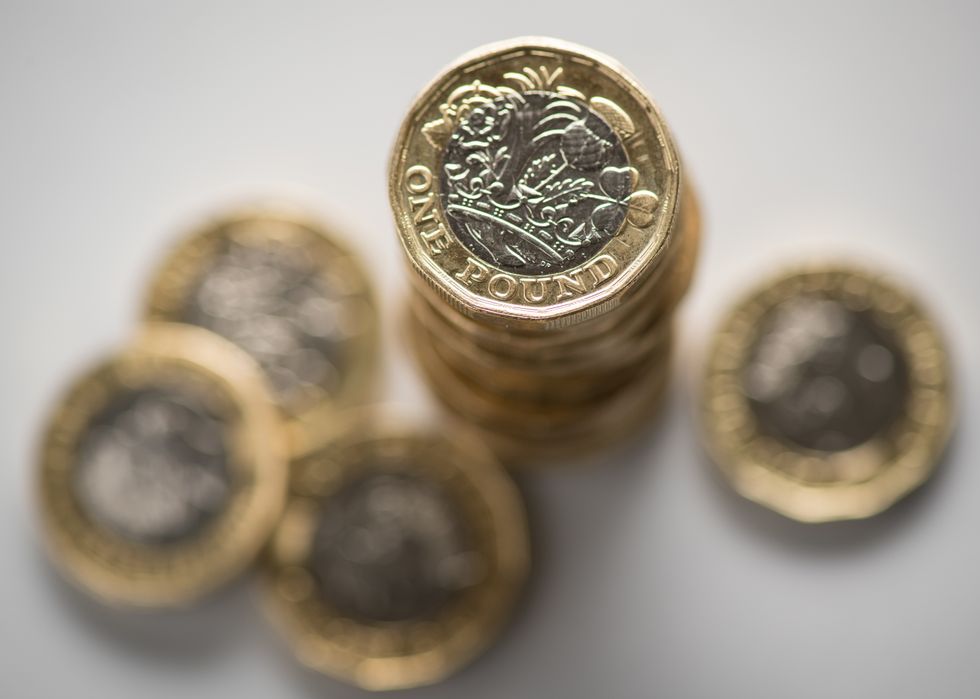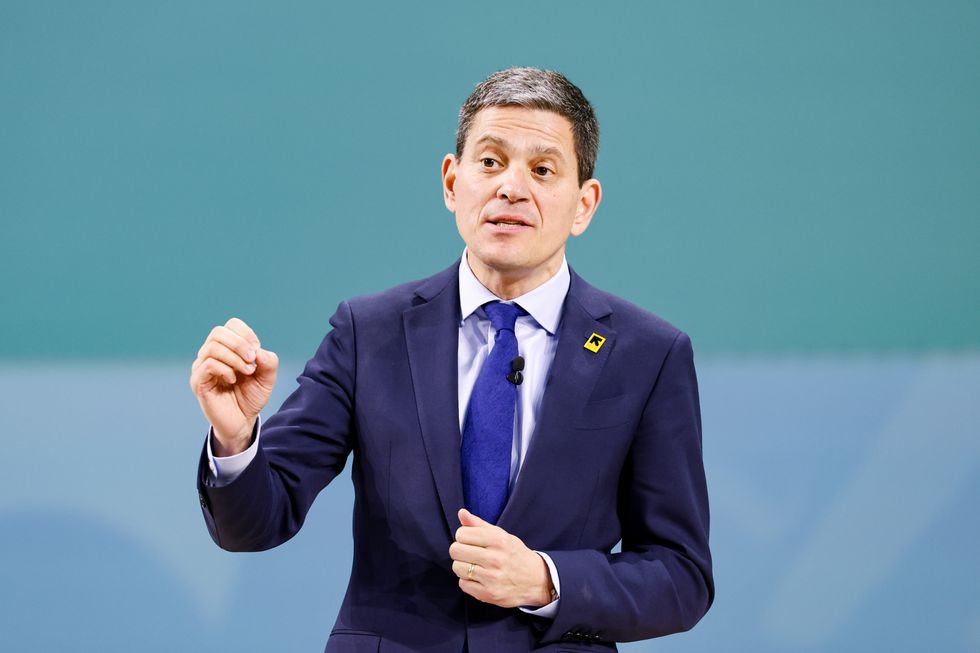‘Britain doesn’t need Brussels – our trade deals are better than anything the EU can offer,’ writes Daniel Kawczynski
Brexit opened up multiple new opportunities for Britain
Don't Miss
Most Read
Trending on GB News
David Miliband states that Brexit has made the UK a lower-status nation.
First of all, Miliband abandoned his job as a Member of Parliament. He moved to the United States of America for an extraordinarily lucrative role where he is paid £858,909 a year.
I am not sure, therefore, whether he is the optimal person to assess Britain’s current status in the post-Brexit context. Nevertheless, I would like to have the opportunity to challenge Miliband’s narrative.
As a result of Brexit, the United Kingdom has joined the world’s largest single trading bloc in the Far East. Something that would have been prohibited under the membership rules of the European Union.

If the UK was still an EU member, it would have been prohibited from entering the world’s largest single trading bloc
PA
The CPTPP is not only the largest trading bloc in the world, it has the fastest-growing economies in the world as its component parts.
Today the European Union and the CPTPP both account for 16 per cent of the world’s global economy.
Guess what happens over the next 25 years according to all international credible bodies including the IMF and the World Bank? The European Union shrinks to 10 per cent and the CPTPP rises to 25 per cent.
So, the United Kingdom is the sole European country to have left a rapidly shrinking market, a market which is shrinking every day as a percentage of the global population and global GDP.
MORE AGENDA-SETTING OPINION:- 'Unbelievable story of school that deceived parents until they went to see their daughter at prize giving and were met with a boy named Tommi'
- ‘William Wragg sexting scandal feels straight out of Russian and Chinese playbooks’
- Patrick reacts to polling on Muslim community: ‘I don’t see how we come back from this’

Within 25 years the CPTPP will account for around 25 per cent of the world's global economy
PAThe UK has entered a trading bloc which is experiencing the fastest economic growth in the world and seeing the greatest increase of middle-class consumers in the world. Let us not forget that in the forthcoming 25 years, the only continent in the world which will grow at a slower pace than the EU is Antarctica.
What are the ramifications of the UK being the sole European country in this trading bloc, and how can we take advantage of the fact that 99 per cent of British goods being exported to the Far East will now be tariff-free?
We are already experiencing huge increases in British whisky sales to Vietnam. We are already seeing massive increases of trade in digital technology between ourselves and Japan. We also have three major Commonwealth partners within the CPTPP whom we abandoned when we entered the EEC in 1972, namely Canada, Australia and New Zealand. Our entry into the CPTPP is allowing us to invigorate our political and economic relations with three of the most important Commonwealth partners through these new trading agreements.
I am already seeing major European companies investing in the UK in order to use us as a springboard to enter the world’s largest trading bloc, knowing that the EU, because of its protectionist agenda, cannot and will not sign an agreement with its main global competitor.

Kawczynski invites Miliband to return to the House of Commons
Getty Images
We were told when we left the EU that we were too small and inconsequential to sign our own bilateral trade agreements. We have now signed 95 such agreements all of which are commensurate or slightly better than we had through the EU, an entity six times our size.
We have demonstrated that we do not need the bureaucrats of Brussels to negotiate on our behalf because we have signed trade agreements superior to the ones we had through the EU. The Japan deal is a classic case in point.
In addition, under this Conservative Government, we have signed the most important naval agreement in my lifetime, Aukus. Our navel agreement with America and Australia allows us for the first time in 50 years to re-enter the Indian and Pacific Oceans with our partners in a strategic way.
It was Lee Kuan Yew who remonstrated with us in 1971 for abandoning our naval bases in Singapore when we were going through a period of economic malaise and political retrenchment. Now for the first time in a post-Suez context, we are re-entering these areas through our economic partnership in the CPTPP and our naval agreements.
Finally, we have stopped this obsession with our own tiny inconsequential continent and starting to look out on the world stage as has always been the duty and responsibility of the United Kingdom.
If Miliband wishes to challenge us on these points, I suggest he abandons his highly lucrative pay in America and returns to the House of Commons at the earliest opportunity so that he can be at the forefront of engaging in this debate.







